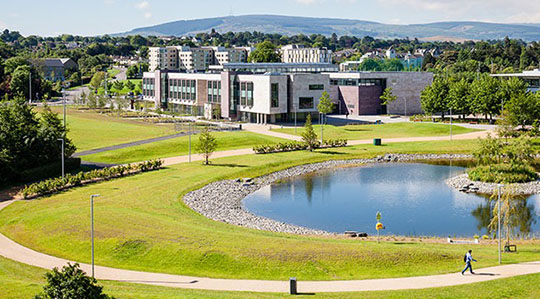
[dropcap]U[/dropcap]CD Dr. Denis Shield was part of a global team of scientists responsible for a possible breakthrough in the development of a Covid-treating drug.
The team discovered a string of small proteins that help Covid-19 infect human cells and respond to existing drug therapies, which they reported to the scientific journal, Science Signaling.
While vaccines offer protection against contracting and spreading the virus, drugs may give full immunity.
Several drugs are currently being tested worldwide as possible treatments for Covid-19, but most are existing drugs.
Health experts and scientists said that it could take years to develop new drugs for specific infections and they have returned to using drugs such as Remdesivir which was created to treat Ebola, to try and combat Covid-19.
Speaking to the Irish Times, Dr. Shields said that while vaccines protect people against the virus, health experts cannot be certain how long they will work in the long-term.
“If too few people are vaccinated, it will reduce the overall protection. So, we will need to have drugs that can stop the Covid-19 virus,” the clinical bioinformatics professor said.
Health experts have stressed the importance of ensuring that as many people as possible get vaccinated to help stop the virus’s spread.
However, Royal College of Surgeons Ireland (RCSI) Professor Samuel McConkey said that immunity from the vaccine might not be lifelong and “might only last 6-24 months.”
Almost 200,000 doses of the vaccine have been administered in Ireland and so far; the HSE has received 207,330 vaccines to date according to a tweet from HSE head, Paul Reid.
Ireland is due to receive 400,000 doses of the AstraZeneca vaccine in the first quarter of the year.
However, Taoiseach Micheál Martin confirmed that health care providers will not give this vaccine to those over the age of 70 after the National Immunisation Advisory Committee (NIAC) reported that it could be less effective on older people.
Instead, over 70s will receive the Pfizer and Moderna vaccines.
Dr. Virginie Gautier, an associate professor in virology at UCD, and her team aim to “challenge” Covid-19 by seeing how it responds in labs to different drug-like substances.
Drugs that work well in labs will be tested in animal studies, and if that succeeds, they will move to human clinical trials.
Through their research, scientists will be looking for ways in which Covid-19 can enter host cells in the body, which may help them understand how viruses evolve and adapt to drugs.
This research will provide them with results that can help with the response to viruses that may emerge in the future.
Shauna Ledwidge
Image Credit: UCD


